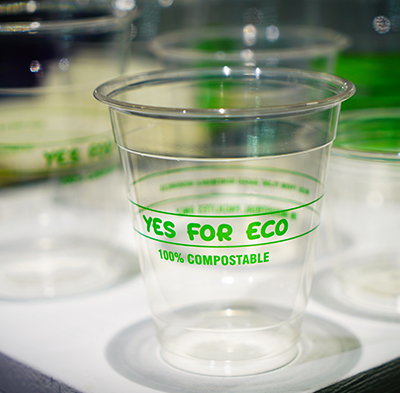
Compostable plastics are derived from renewable materials like corn, potato starches, soy protein, and lactic acid.
The terms “biodegradable” and “compostable” are often used interchangeably, but typically, when customers ask for a biodegradable material, they are looking for a compostable material. Only plastics labeled “compostable” are held to specific regulatory standards. Compostable materials biodegrade within a specified period of time and leave no toxic residue in the soil. Products labeled “biodegradable,” on the other hand, have no time limits on their decomposition, may require specific environmental factors to begin degrading, and may leave residues or particulates behind.
In the United States, the Federal Trade Commission (FTC) requires companies that market their products as compostable to show reliable scientific evidence that all materials in the product or package will safely break down into, or become part of, usable compost in the same amount of time as the materials with which it is composted. The FTC uses the internationally-recognized ASTM D6400 standard specification for the labeling of plastics designed to be aerobically composted in municipal or industrial facilities.
Read our blog post: Biodegradable vs. Compostable: What’s the Difference?
Read our Sustainability Disclaimer